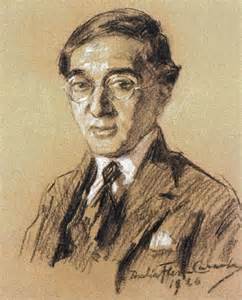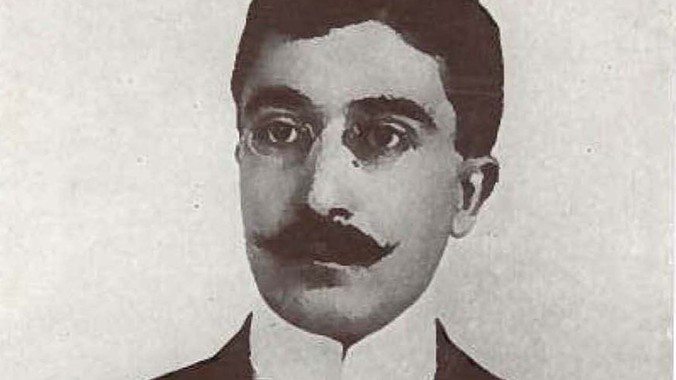Cavafy: a poet memorialised
[dropcap]T[/dropcap]his could not have been a more symbolic time for Constantine P. Cavafy’s work to be honoured. Declared the ‘Cavafy Year’ by UNESCO, 2013 is a year to reflect on the poet’s work and contribution to poetry. At the same time, the Onassis Cultural Centre plans to make his works more easily accessible to the general public, which would mean making his work electronically available. With this in mind, we take a further look at the poet’s work and its relevance to society today.
Having recently acquired the complete archive of Constantine Cavafy’s works, the Onassis Cultural Centre chose to celebrate this event by placing extracts of his work on buses and in metro stations in the city of Athens. A representative of the centre said that Cavafy’s work captures the ‘spirit of society’ and that the aim was to re-incite the general public’s interest in poetry.
 Nonetheless, great controversy was generated by one phrase in particular: ‘Ein’epikindinon pragma h via’ roughly translating to ‘Haste is a dangerous thing’ from the poem ‘In a Large Greek Colony, 200 B.C.’. In Greek, ‘Via’ has two senses; it can mean haste but also, more controversially, violence. Ironically enough, the message was (hastily) interpreted as ‘violence is a dangerous thing’ and some even accused the centre of political bias.
Nonetheless, great controversy was generated by one phrase in particular: ‘Ein’epikindinon pragma h via’ roughly translating to ‘Haste is a dangerous thing’ from the poem ‘In a Large Greek Colony, 200 B.C.’. In Greek, ‘Via’ has two senses; it can mean haste but also, more controversially, violence. Ironically enough, the message was (hastily) interpreted as ‘violence is a dangerous thing’ and some even accused the centre of political bias.
Also ironically, this configures exactly what Cavafy meant. Our tendency to do things with haste is dangerous and a threat to democracy, and to our status as respectable citizens of a democracy. Putting aside the fact that an important cultural initiative threatened to be overshadowed and even politicized by mass media, it can be concluded that Cavafy’s message still rings true to our ears. This year, exactly 150 years from his birth, he initiates a meaningful dialogue about dialogue itself.
As his words promenade around Athens, we must at least recognise this. If not, the consequences are made clear in the poem ‘Waiting for the Barbarians’:
[divider]
Why this sudden restlessness, this confusion?
(How serious people’s faces have become.)
Why are the streets and squares emptying so rapidly,
everyone going home so lost in thought?
Because night has fallen and the barbarians have not come.
And some who have just returned from the border say
there are no barbarians any longer.
And now, what’s going to happen to us without barbarians?
They were, those people, a kind of solution.
[divider]
Whether it was a reductive way of presenting his work or not, it is evident that Cavafy’s work contains timeless observations on society, morality and the human condition. Far from romanticizing reality, yet not cynical, his poetry is relevant even today.

Comments